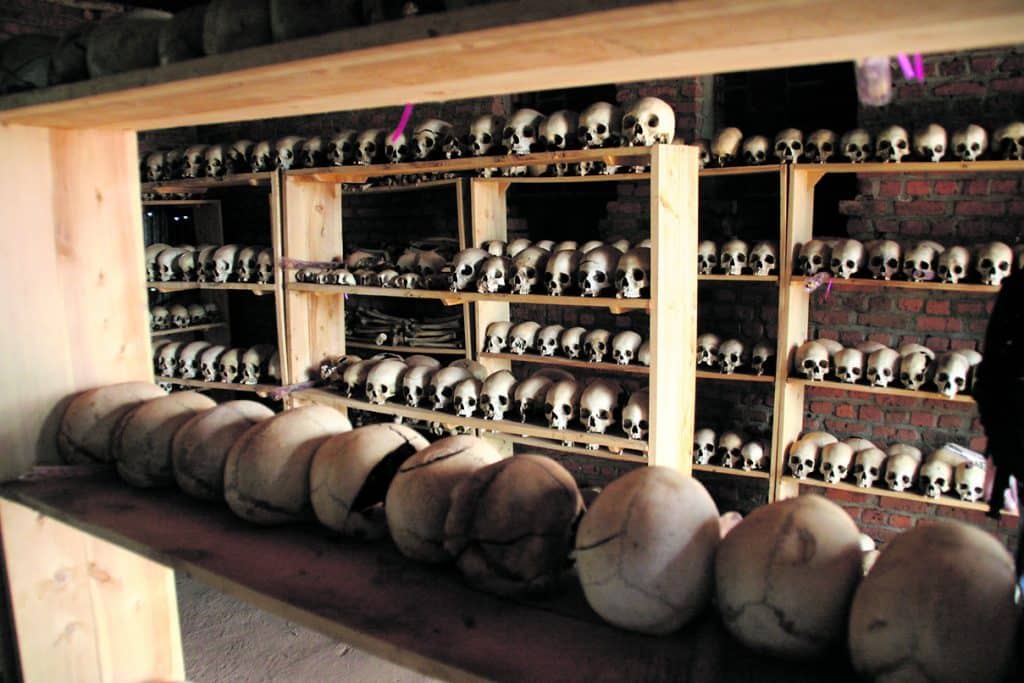
A new feature documentary, ‘Theocracy, the Emigrant’s Artist’, capturing the life and work of the London-based Irish artist Bernard Canavan – known globally as The Emigrant’s Artist because of his paintings of the Irish Diaspora – will premiere at this year’s Cork International Film Festival in November. Directed by renowned documentary filmmaker Sé Merry Doyle, the film traces Bernard’s story, from being abandoned as a baby in a notorious orphanage in Dublin to his emigration to London. Now in his early 80s, for the past few years Bernard has diverged from the theme of emigration to confront his demons – what the Catholic Church did to him and to thousands of other victims, mothers and babies who were incarcerated – in a darker collection of paintings entitled ‘Theocracy’ writes Mary O’Brien. Bernard is married to fellow emigrant Janet Lucitt from Bandon.
In 1944, Bernard’s unmarried parents had no other option living in Catholic Ireland but to place their newborn child into Saint Patrick’s Guild, a so-called orphanage in Dublin, later to become known as ‘The House of Shame’. At the age of four, the little boy was sold by the nuns to a Longford-based couple, Mr and Mrs Canavan, who were unable to have children of their own. In 1959, at the age of 15, Bernard emigrated to London where he worked in a sawmills before earning a scholarship to Oxford University.
He went on to work as as a teacher of history and art history, as well as an illustrator for radical and left-wing British magazines and journals, including ‘Oz’, ‘International Times’ and ‘Tribune’.
In 2001, while teaching a creative writing class at the Hammersmith Irish Centre, Bernard met Bandon native Janet, a student in his class. Although there was a considerable age gap – she was in her 30s and he in his 50s at the time – she would become his second wife and greatest supporter, encouraging him to exhibit his work, leading to international acclaim for the artist.

Bernard’s paintings of the diaspora have been described as creating a visual narrative showing the pain of women and men, girls and boys, leaving a broken Ireland to face the indignity of joining the cattle on the boat train to a new life in England. They show the realities of life as a subbie, piece work, being ‘on the lump’ and digging the tunnels.
In 2018, the President of Ireland, Michael D. Higgins bestowed the prestigious Presidential Award upon Bernard for his contribution to Irish culture in the UK.
Janet Lucitt grew up in Bandon – her dad, Ted Lucitt, was well-known in the local community as a boxing coach at Gaggin Boxing Club – and after graduating from UCC in 1987, at a time when Ireland was in the grips of economic recession, she emigrated to London to find work, where she received a baptism of fire as a young trainee teacher, working at an underfunded ‘failing’ school in London.
After spending 20 years teaching, Janet went back to college to study law before returning to work in education. Today she heads up a special needs unit in a college of further education in London, where she hopes that she too is “making a difference”.
“I think what first drew me to Bernard was his intellect, his ideas,” she shares. “he was left-wing, interested in the arts and so was I.”
She describes her husband as intelligent, charming and very kind, the type of person that people and animals are drawn to. “He also holds a great amount of anger at the Church and state in Ireland for taking his identity from him.
“We got a cat this year, which has brought out the lighter side of him,” she adds. “It’s a great distraction.”
Bernard paints out his dark thoughts, through his paintings addressing the suffering that he and so many thousands of other unfortunates faced in orphanages and Mother and Baby homes in 20th century Ireland. The images are stark and unforgiving with Bishops depicted holding teddy bears to tempt children away from their mothers, clergy ripping new-born babies out of their mother’s arms, and nuns digging graves.

Of his early years, Bernard shares: “We infants owned nothing; no clothes except donated garments, no toys or picture books, we knew nothing, in fact we were nothings ourselves. We had no rights.”
Following a decades-long search, at the age of 65, Bernard finally managed to make contact with his biological family after locating his aunt, Maura Reardon, in Glengarriff.
At 81, he remains committed to being a voice for the countless survivors of Ireland’s Mother and Baby homes. He is a regular visitor to West Cork with Janet.
‘Theocracy, the Emigrant’s Artist’ directed by Sé Merry Doyle screens at The Cork International Film Festival 2025 on November 10, (5pm) at The Triskel Cinema, Tobin Street Cork.



